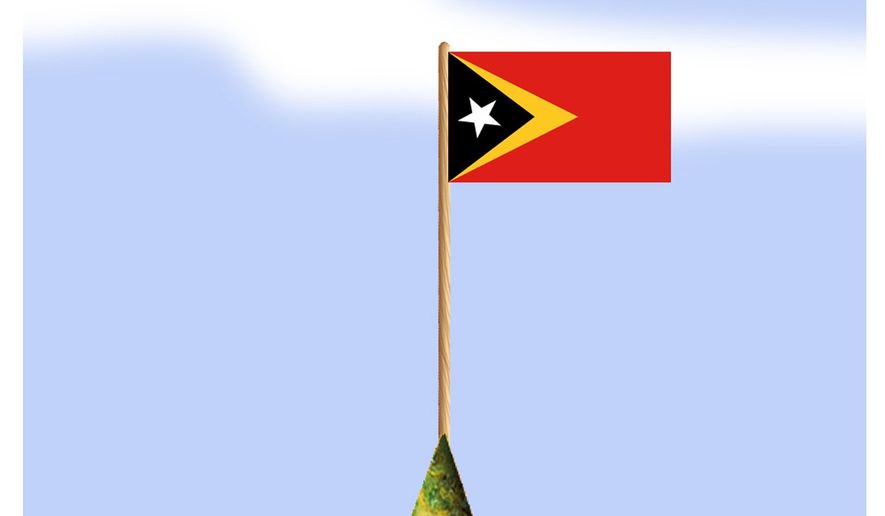OPINION:
If you care about who will control global energy flows and who will control the Pacific for the next 50 years, you should care about Timor-Leste. It may be the most important nation you’ve never heard of.
The good news is Timor-Leste is a happy story.
With the help of the United States, it fought for and won its independence from Indonesia in 2002. It is now a strong democracy in a region where democracy is consistently under assault. Despite being one of the newest nations on the planet, it was the only country in Southeast Asia that Freedom House ranked as “free” in 2021. It has had free and open elections and successfully transferred power multiple times. It has free speech and free media.
Timor-Leste is one of only two predominantly Catholic nations in a region where Catholicism is under duress (ask Jimmy Lai or Cardinal Zen, both now in Chinese prisons).
It is small (less than 1.5 million people), and like most of us, undercapitalized. It is the poorest country in the region; nearly half of its population lives below the poverty line.
The other good news is that Timor-Leste is blessed with abundant natural resources. It controls oil and natural gas fields in the Timor Sea. It has been a careful steward of the resources, creating a sovereign Petroleum Fund in 2005 to make sure that the country’s resources are managed for the benefit of both current and future generations.
Since 2013, however, oil and gas revenues from the Timor Sea have declined, increasing the need for commercial development of other reserves.
Fortunately, Timor’s national oil company (headed by Antonio de Sousa, who fought in the war for independence) has a majority stake in the Greater Sunrise fields, which are about 300 miles north of Australia and 100 miles south of Timor-Leste. The fields hold as much as 10 trillion cubic feet of natural gas or about one-third of the amount the United States uses in a year.
The importance of these fields for Timor-Leste is hard to overstate. They are rightly perceived as the most promising source of revenue to lift its citizens out of poverty and develop and diversify its economy.
For our part, the United States, Australia and other governments in the Pacific have an opportunity in this instance to strengthen regional and global economic and energy security and support a nascent regional democracy, while also helping to contain the always grasping communist China.
Investing in and helping Timor-Leste would allow the U.S. and Australia to work with a partner that shares our most essential values. As China continues to expand its global reach, through bilateral arrangements and the economic colonialism of the Belt and Road Initiative, American and Western governments and commercial partnerships with democratic nations are crucial.
In a world where oil and natural gas prices are likely to remain high and our contest with China is likely to be a durable feature of the landscape, helping Timor-Leste and places like it grow and prosper will ultimately help us.
Timor-Leste needs powerful friends and investment; although, on the scale typical of oil and gas investments, it needs a relatively modest amount — less than the current federal government is speculatively investing in hydrogen hubs or using to socialize the costs of electric vehicle chargers.
Timor-Leste is one of the last contested nations remaining that have yet to commit to either the United States or the economic colonialism of the communist Chinese. In the previous generation, we helped Timor-Leste win its independence. In this generation, a very modest investment of time and resources from us can keep them prosperous and free, can help us keep communist China at bay, and can help produce the energy the world needs.
In a recent conversation with Mr. de Sousa — the freedom fighter turned entrepreneur — he was asked what he was seeking. He didn’t talk about money or assistance or diplomatic niceties. Instead, he said simply that he was looking for a genuine partner to help his people. The United States can and should be that partner.
• Michael McKenna, a columnist for The Washington Times, is the president of MWR Strategies. He was most recently a deputy assistant to the president and deputy director of the Office of Legislative Affairs at the White House.




Please read our comment policy before commenting.